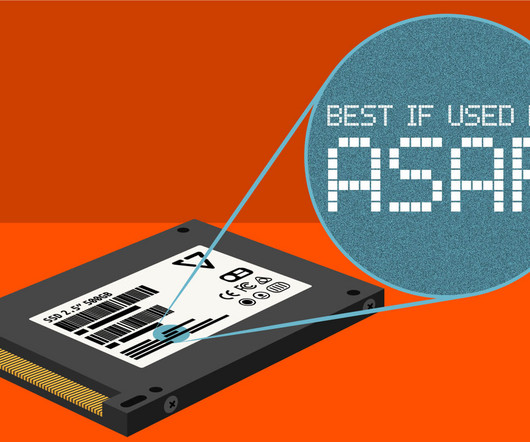The SSD Trap: How a Storage Solution’s Reliance on SSDs Can Impact You (Part 1 of 2)
Pure Storage
MAY 10, 2024
From 2012 to 2019, AFAs have risen in popularity and now drive approximately 80% or more of all storage shipments for performant application environments. are needed to build a system to meet any given performance and capacity requirements. HDDs have essentially been left in the magnetic dust. Next, let’s look at DRAM.












Let's personalize your content